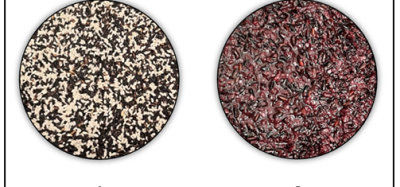An avocado a week can greatly improve heart health, according to new study
- Like
- Digg
- Del
- Tumblr
- VKontakte
- Buffer
- Love This
- Odnoklassniki
- Meneame
- Blogger
- Amazon
- Yahoo Mail
- Gmail
- AOL
- Newsvine
- HackerNews
- Evernote
- MySpace
- Mail.ru
- Viadeo
- Line
- Comments
- Yummly
- SMS
- Viber
- Telegram
- Subscribe
- Skype
- Facebook Messenger
- Kakao
- LiveJournal
- Yammer
- Edgar
- Fintel
- Mix
- Instapaper
- Copy Link
Posted: 30 March 2022 | Abi Sritharan (New Food) | No comments yet
Avocados have been linked to a lower risk of cardiovascular disease, according to a new study by the American Heart Association.


Eating two or more servings of avocado each week may lower the risk of cardiovascular disease, while substituting avocado for certain fat-containing foods like butter, cheese or processed meats is linked with a lower risk of cardiovascular disease events, such as coronary heart disease and stroke, according to a new study.
Avocados contain dietary fibre, unsaturated fats and other favourable components that have been associated with good cardiovascular health and maintaining healthy cholesterol levels.
Researchers behind this new study, published in the Journal of the American Heart Association, have stated that this is “the first, large, prospective study to support the positive association between higher avocado consumption and lower cardiovascular events.
“Our study provides further evidence that the intake of plant-sourced unsaturated fats can improve diet quality and is an important component in cardiovascular disease prevention,” said Lorena S Pacheco, PhD, MPH, RDN, lead author of the study. “These are particularly notable findings since the consumption of avocados has risen steeply in the US in the last 20 years, according to data from the US Department of Agriculture.”
For 30 years, researchers studied more than 6,000 women (aged 30-55 years) from the Nurses’ Health Study and almost 42,000 men (aged 40-75 years) from the Health Professionals Follow-up Study. All study participants were free of cancer, coronary heart disease and stroke at the start of the study and living in the United States. Researchers documented 9,185 coronary heart disease events and 5,290 strokes during more than 30 years of follow up. The participants’ diets were assessed using food frequency questionnaires given at the beginning of the study and then every four years. They calculated avocado intake from a questionnaire item that asked about the amount consumed and frequency.
The study found that after considering a wide range of cardiovascular risk factors and overall diet, participants who ate at least two servings of avocado (one avocado) each week had a 16 percent lower risk of cardiovascular disease and a 21 percent lower risk of coronary heart disease, compared to those who never or rarely ate avocados. The researchers added that based on statistical modelling, replacing half a serving daily of margarine, butter, egg, yoghurt, cheese or processed meats with the same amount of avocado was associated with a 16-22 percent lower risk of cardiovascular disease events. They also note that no significant associations were found in relation to stroke risk and how much avocado was eaten.
“Offering the suggestion to replace certain spreads and saturated fat-containing foods, such as cheese and processed meats, with avocado is something physicians and other healthcare practitioners such as registered dietitians can do when they meet with patients, especially since avocado is a well-accepted food,” said Pacheco.
The study aligns with the American Heart Association’s guidance to follow the Mediterranean diet – a dietary pattern focused on fruits, vegetables, grains, beans, fish and other healthy foods and plant-based fats such as olive, canola, sesame and other non-tropical oils.
“These findings are significant because a healthy dietary pattern is the cornerstone for cardiovascular health; however, it can be difficult for many Americans to achieve and adhere to healthy eating patterns,” said Cheryl Anderson, PhD, MPH, FAHA, chair of the American Heart Association’s Council on Epidemiology and Prevention. “We desperately need strategies to improve intake of AHA-recommended healthy diets — such as the Mediterranean diet — that are rich in vegetables and fruits. Although no one food is the solution to routinely eating a healthy diet, this study is evidence that avocados have possible health benefits. This is promising because it is a food item that is popular, accessible, desirable and easy to include in meals eaten by many Americans at home and in restaurants.”
The authors of this study added that more research needs to be done on this as the study analyses may be affected by measurement errors due to self-reporting. In addition to this, participants were mostly white nurses and healthcare professionals, so these results may not apply to other groups.









